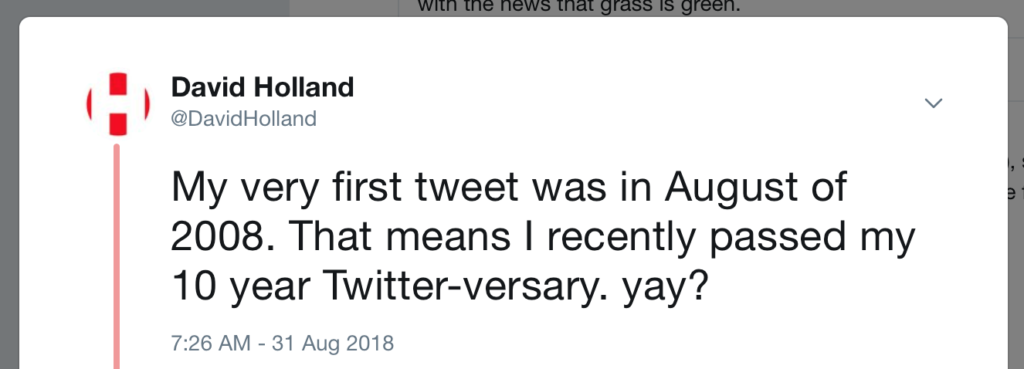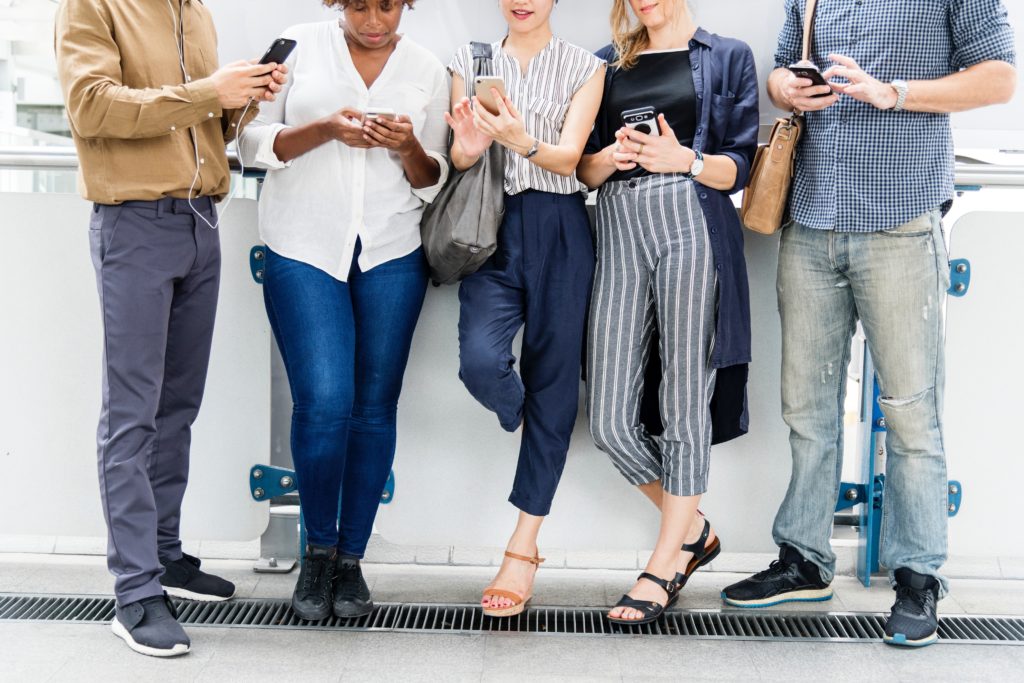
I “unfollowed” about 100 good, smart people this weekend. Allow me to explain.
I joined Twitter back in August of 2008, when the relatively new platform was just beginning to gain traction. That was early enough that I was able to register my own name (@DavidHolland) as my Twitter handle—as opposed to something like @DashingDallasDave77 or such.
Eighteen months earlier I’d also registered my name on another emerging social media platform—one that was big with all the college kids. Facebook.
I’d learned in the Internet boom years that when a new platform rolled out, it’s a good idea to stake a claim to your own name on the platform before someone else grabbed it, just in case the platform took off. I’d discovered that there are a lot of David Hollands in the world (especially in England.)
For example, when Google rolled Gmail out in beta form in 2004, I missed being able to register DavidHolland at gmail dot com as my email address, and ended up having to throw my middle initial in there. Ever since I’ve been getting emails intended for some guy in England and I have no doubt that the David Holland with no middle initial has gotten hundreds, probably thousands, of emails intended for me.
Anyway, I noted last August that I was passing my ten year anniversary on Twitter.

In that decade, Twitter (and Facebook) essentially morphed from a way for friends and family to share where they were and what they were doing into a micro-blogging site for political pundits.
. . . and as a result, Twitter (and Facebook) turned us all into political pundits. We woke up one day and we were all George Will.
Social media, delivered to a device that is constantly in our hands, is addictive. Twitter was my addiction. I have friends and loved ones whose drug of choice is Facebook or Instagram. Neuro-scientists are just now getting a feel for what social media is doing to our brain wiring.

Spoiler alert: It’s not good.
What we know less about is how, in the Obama-Trump era, social media also began to fundamentally warp the fabric of our society. I should also note that Instragram is just as potentially toxic but in different ways for different reasons.
Some platforms fuel rage. Others fuel envy and insecurity. Neither is healthy. But to repeat, Twitter is my drug of choice. And, the only person in the world I can control is me.
And thus I made a decision.
This weekend I ruthlessly culled my Twitter follows with a clear set of criteria in mind. In each case I asked:
“Does this account consistently bring me either joy, laughter, encouragement, wisdom, or useful knowledge of things I enjoy knowing more about?”
Or conversely, “Does this account typically bring me information that makes me want to punch somebody, or at least give them a good and proper tongue lashing to straighten out their thinking?”
If the answer was “yes” to the latter, rather than the former, I unfollowed (or in some cases muted). The “unfollow” did not mean that I didn’t like or admire the person behind the account. It didn’t mean that I wasn’t rooting for them. It didn’t mean I wouldn’t go read that person at length on a blog or in a publication.
It simply meant that I’m now curating my Twitter feed in such a way that I’ll walk away from each session on the platform a happier, wiser, smarter, more hopeful person.
As opposed to a rage-filled, hyper-tensive, pessimist convinced the world is going to hell because it’s filled with horrible people.
What brings me joy is faith, history, science, archeology, maps, space exploration, books, military stuff, sports, and humor. And now my Twitter follows reflect these interests.
Don’t misunderstand. I’m not sticking my head in the sand.
It’s not that I don’t believe in staying informed about our nation and world. I was a highly well-informed individual before social media existed and I will continue to be one long after I’ve purged the culture wars out of my timeline.
What I won’t be is a constantly outraged, worried individual.
As I think about it, social media has probably lowered the depth and breadth of my knowledge about what’s going on in the world. On Twitter and Facebook, everything you read is about the one or two stories that constitute the main ingredient in the outrage du jour.
Each new day brings hundreds of people saying and sharing basically the same thing about one or two things. This crowds out other important, but non-sensational events.
So, this morning over coffee, as is my habit, I reached for my phone to pop open Twitter. I did so knowing that what I would find there would most likely bring me joy.
It did. And I thought: Why didn’t I do this long ago.
